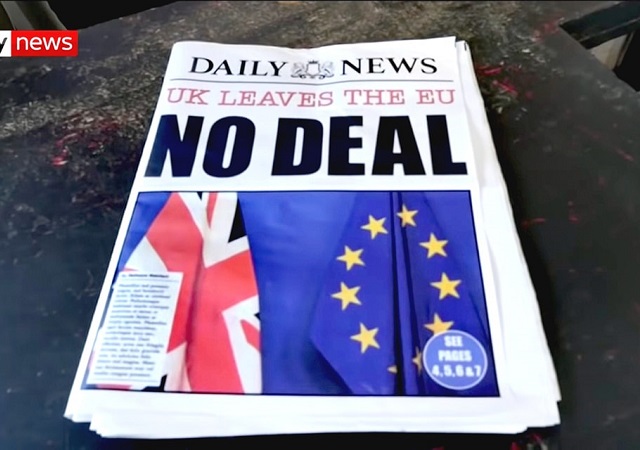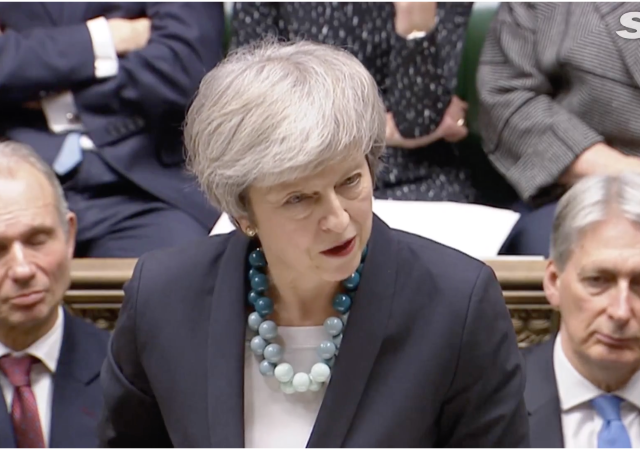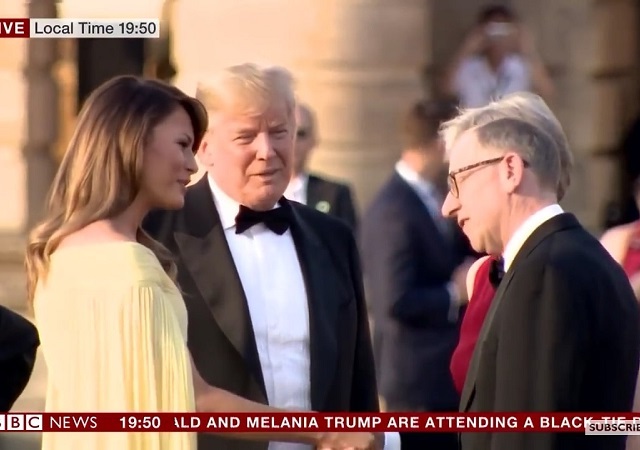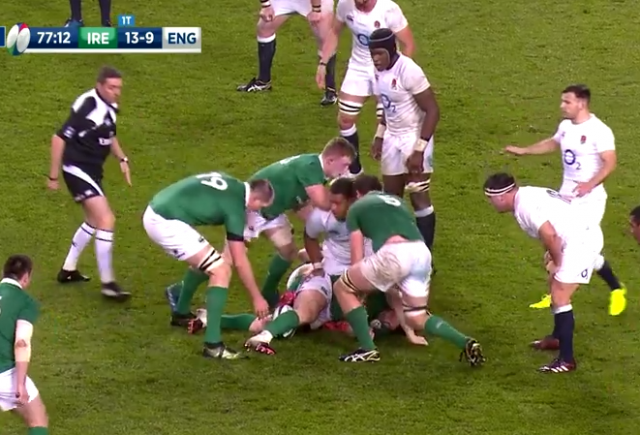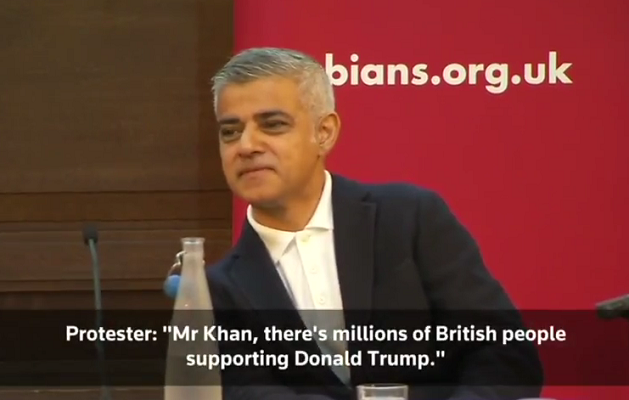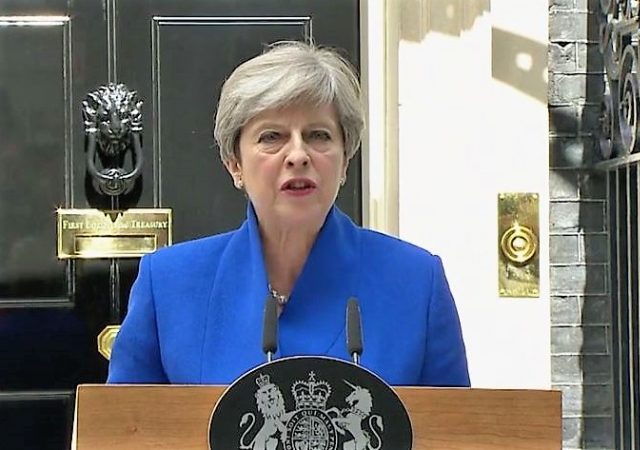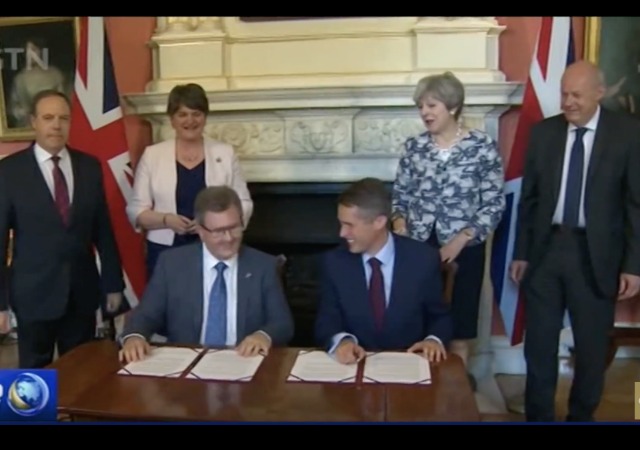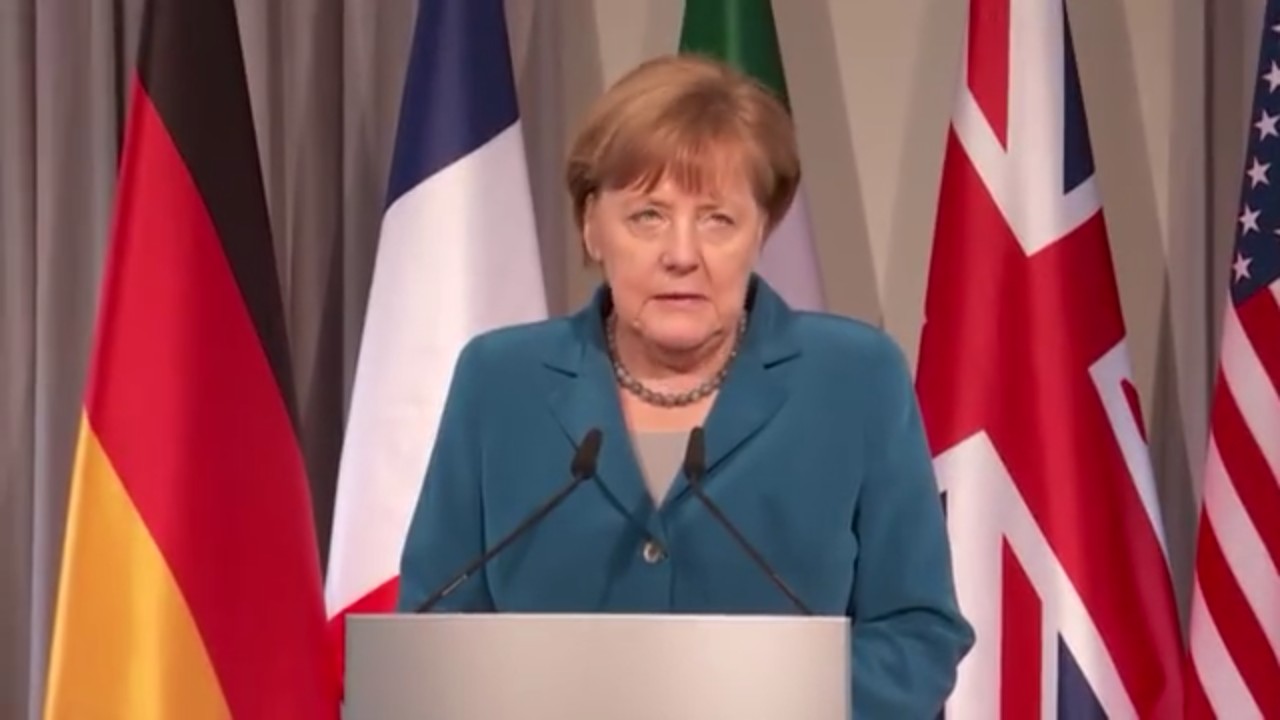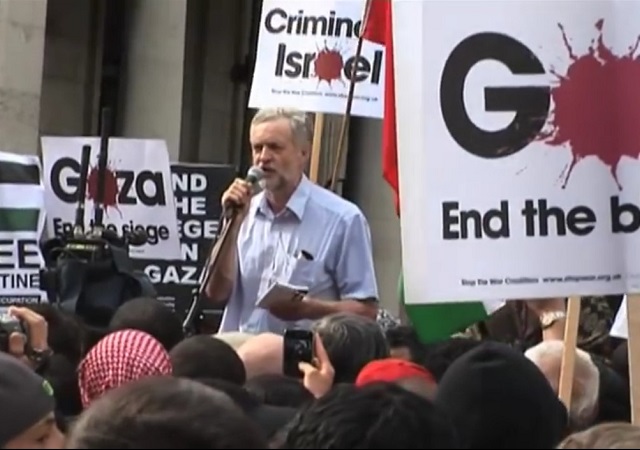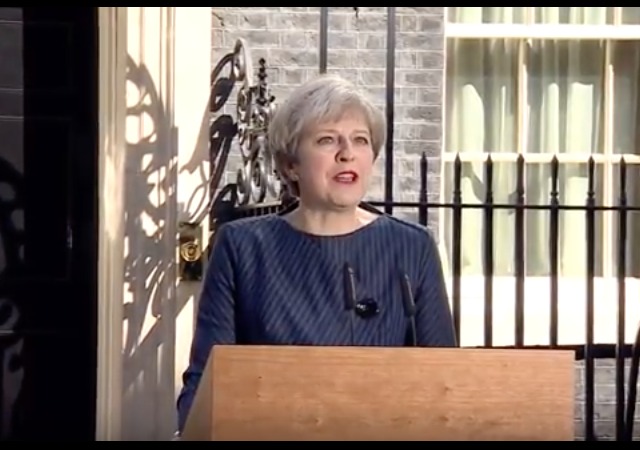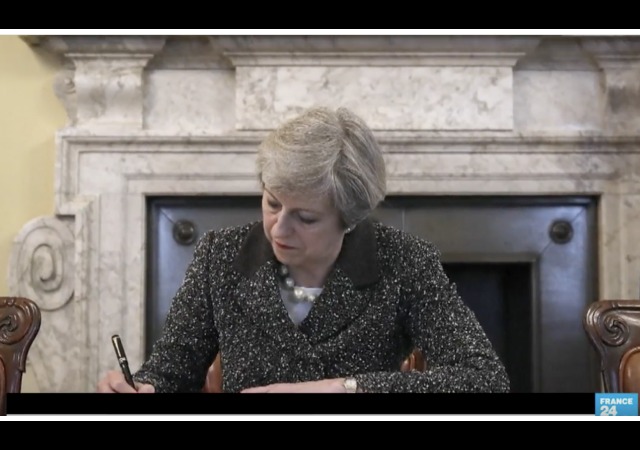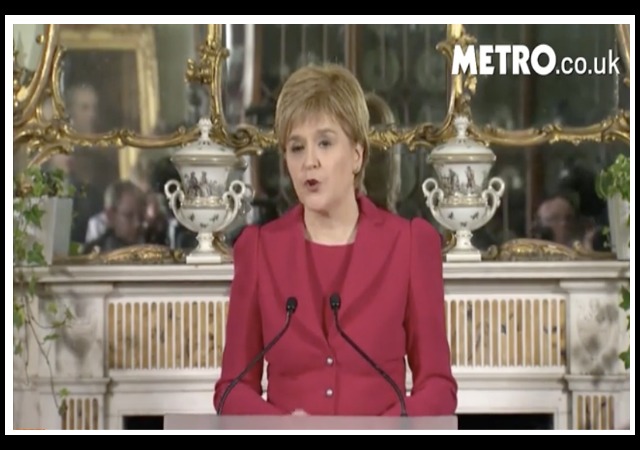BREXIT Tag
British PM Theresa May Survives No Confidence Vote Within Her Party
"Voting had opened minutes after she told her party she would not fight the next election."...
Theresa May Cancels Crucial Vote on Brexit Deal In Face of Possible Defeat
Theresa May Faces More Brexit Problems as Cabinet Members Resign
Dominic Raab, the second of May's Brexit secretaries to quit the role in as many years, said the draft agreement reached with Brussels would effectively leave Britain beholden to the rules and regulations of the European Union and even give the EU the power to stop the U.K. from extricating itself down the road. He said he could not "in good conscious support the terms" of the deal he helped to craft.
Trump: Britain ‘Losing its Culture’ Because of Mass Immigration
Brexit Secretary David Davis, Foreign Secretary Boris Johnson Resign Due to May’s ‘Weak’ Brexit Plan
What is going on in Ireland this St. Patrick’s Day?
London: Pro-Trump Protesters Disrupt Mayor Sadiq Khan’s Speech
Pro-Trump and pro-Brexit protesters from "a group called the White Pendragons"...
Report: Predictions of Post-BREXIT Economic Doom Vastly Overstated
Theresa May, Northern Irish Party Make Deal to Give Conservatives Slim Majority
With the deal, which is reported to provide Northern Ireland with additional funding of up to $2 billion over five years, Mrs. May will be able to win a clear majority vote in Parliament on Wednesday on the legislative program her government set out last week. Without the support of the D.U.P., Mrs. May risked losing that vote of confidence, which would have opened the way for the opposition Labour Party to try to form a minority government of its own.
British Election Final Results: Theresa May pulls out slim victory
Merkel Threatens UK, Securing Borders “Will Have Its Price”
In a rare move, German Chancellor Angela Merkel has threatened the British government with "consequences" if it were to restrict immigration from the EU member states after the country formally breaks away from the union. “If the British government says that free movement of people is no longer valid, that will have its price," German Chancellor said. "Merkel threatens the Brits," reported the leading German newspaper, Die Welt.
If Britain were to put a cap on the number of EU immigrants allowed into the country, "we would have to think about what obstacle we create from the European side," Merkel warned. German Chancellor's latest threats came in the backdrop of recent reports that British Prime Minister Theresa May was planning to end the open immigration from the EU countries, once Britain leaves the union following the Brexit negotiations.UK Election: Labour Party heading for a big defeat, polls suggest
British Left Freaks Out Over Theresa May Calling Quick General Election
“The country is coming together but Westminster is not,” she said.
Merkel, Hollande Push Back Against Theresa May & Brexit
Theresa May Signs Brexit Letter, Delivers it to the EU
Theresa May’s Brexit Plan Moves Forward
Britain is keen to seek a comprehensive free-trade deal with the EU as part of the exit process. However, the European Council wants to sort out Britain’s “divorce bill” from the bloc before any future relationship is agreed. The status of EU nationals already in the UK is another issue that both sides want to deal with early on.
Scotland May Seek New Independence Referendum
Sturgeon said it was clear that the UK was heading for a "hard Brexit" to the detriment of Scotland, and that Scottish voters deserved a choice of remaining in the European Union as part of an independent nation.
Donations tax deductible
to the full extent allowed by law.
CONTRIBUTORS
- William A. Jacobson
Founder
- Kemberlee Kaye
Sr. Contrib Editor
- Mary Chastain
Contrib Editor
- Fuzzy Slippers
Weekend Editor
- Mike LaChance
Higher Ed
- Leslie Eastman
Author
- Vijeta Uniyal
Author
- Stacey Matthews
Author
- Jane Coleman
Author
- James Nault
Author
- Mandy Nagy
Editor Emerita
- Learn more about the Contributors

